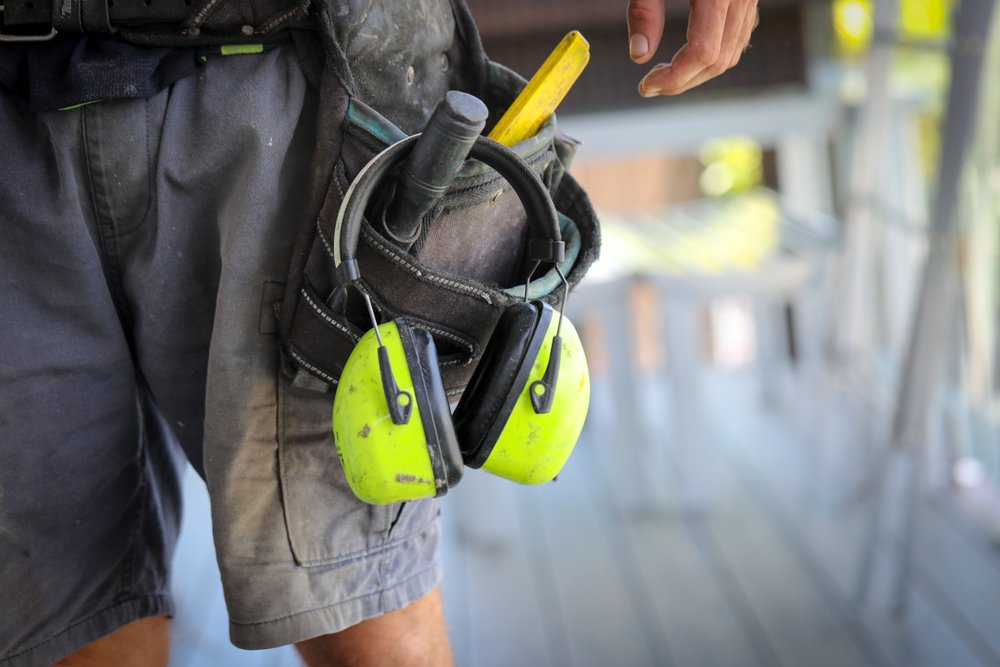During the pandemic and through to today, the construction industry has been under unprecedented demand. A true housing boom is underway and this has kept most tradies flat out busy. If you are a tradesman, have a quick read below to see whether you have adequate insurance for the risks that you face on the job.
Why do tradesmen need insurance? What risks do they face?
Just about every trade involves entering onto someone else’s property, interacting with the public, operating machinery, performing a service or supplying a product. Each of these activities contains a range of risks that could leave you as a tradesman liable for damage or injury, or suffer injury or loss yourself. When these unfortunate events occur, the financial liability and cost to you could be overwhelming, especially if legal or medical expenses come into it. That’s why insurance for tradesmen is essential. See below for a breakdown of some of the risks that specific types of trades face.
Electricians
Electricians operate in one of the potentially most risky trades. There is the risk of electrocution for both tradie and the public. Electrical parts you install have the potential to fail, causing damage or fire. Electricians also have expensive equipment as well as their work vehicle.
Plumbers
Plumbing can be a physically demanding job and plumbers are exposed to a number of dangers in their daily work. Natural gas, sewerage and machinery all pose a risk of harm to the plumber and to the public. Working in awkward tight spaces or digging can also lead to acute or chronic injuries.
Appliance repairers
Appliance workers often need to work on someone else’s property or transport other people’s appliances and there is risk of damage to property which the appliance repairer will be liable for. Appliance repairers also may have considerable value invested in their tools and vehicle. There is a risk of these breaking or being stolen, which would cause expensive repairs or replacement and interruption to the business.
Tree loppers
Tree lopping, pruning and stump removal is certainly an occupation with hazards. Machines that cut through wood with ease pose great danger to the tradesman and there is a high risk of property damage if branches or trees fall in the wrong direction. Tradesmen in this industry usually have a lot invested in trucks, tools and machinery which increases the financial risk they face.
Garden and park services
Workers in this industry face a range of risks associated with hard outdoor work and heavy machinery. There are also risks that the machinery and vehicles, which are vital for the business, may be damaged or cause property damage.
Lawn mowing
As with many of the other trades, lawn mowing businesses have a significant amount of risk associated with use of power equipment and machines that can cause injury or damage. Since people in this trade operate on other people’s property there is also the continuous risk of inadvertently causing harm or damage to the public.
What types of insurance for tradesmen is the most important?
Where there is risk and liability, there also needs to be insurance cover to protect you, your business and the public. Trade insurance ensures that people will be compensated for loss suffered, including you, and be able to get the help they need. It also means that you and your business won’t be overwhelmed by the cost. Below are some of the most important trade insurance policies.
1. Public Liability Insurance
This is perhaps the most essential policy for all tradesmen. If you are found liable for damage or injury caused to a third party this policy will cover you financially. It can also cover the expensive legal fees that you may incur from having a lawyer assist you. This policy is essential because these risks are high in trades, and the financial burden of being found liable can be tremendous.
2. General Property Cover
Most tradies rely on their tools and equipment and yet there is the risk that these get broken, damaged, lost or stolen. In such cases it can be very expensive to repair or replace them and difficult or impossible to continue work without them. General Property Cover is there to protect your business financially if your transportable items like tools and equipment are lost, damaged or stolen.
3. Workers Compensation Insurance
When a business, including trades businesses, has employees it is compulsory in Australia that the business has Workers Compensation Insurance. Workers compensation claims can be for medical bills, specialist equipment, ongoing wages while on leave and rehabilitation costs. As you can imagine these might add up to quite a sum. This insurance policy will reimburse your business for payments made because of a successful workers compensation claim against your business, ensuring your workers and your business are protected.
4. Personal Accident and Illness Insurance
This type of insurance ensures that you will maintain a percentage of your normal income if you aren’t able to work because of injury or illness. Due to the many hazards a tradesman faces including working with tools, machinery, electricity, gas, heights, confined spaces and driving on the road, it’s clear that Personal Accident and Illness Insurance for tradesmen is vital. It will make sure you can pay your bills and maintain your lifestyle while you are in recovery.
Insure your trade business with GSK Insurance Brokers
Whether you are a self-employed tradie or a large trade business, we at GSK Insurance Brokers can help you get precisely the right insurance cover for your needs. We have insurance for tradesmen and construction works insurance which we can tailor to your unique situation. We’ve been working with insurance for the trades industry in Western Australia for over 40 years and we’d love to work with your business too. Contact us today on 08 94 78 1933.


